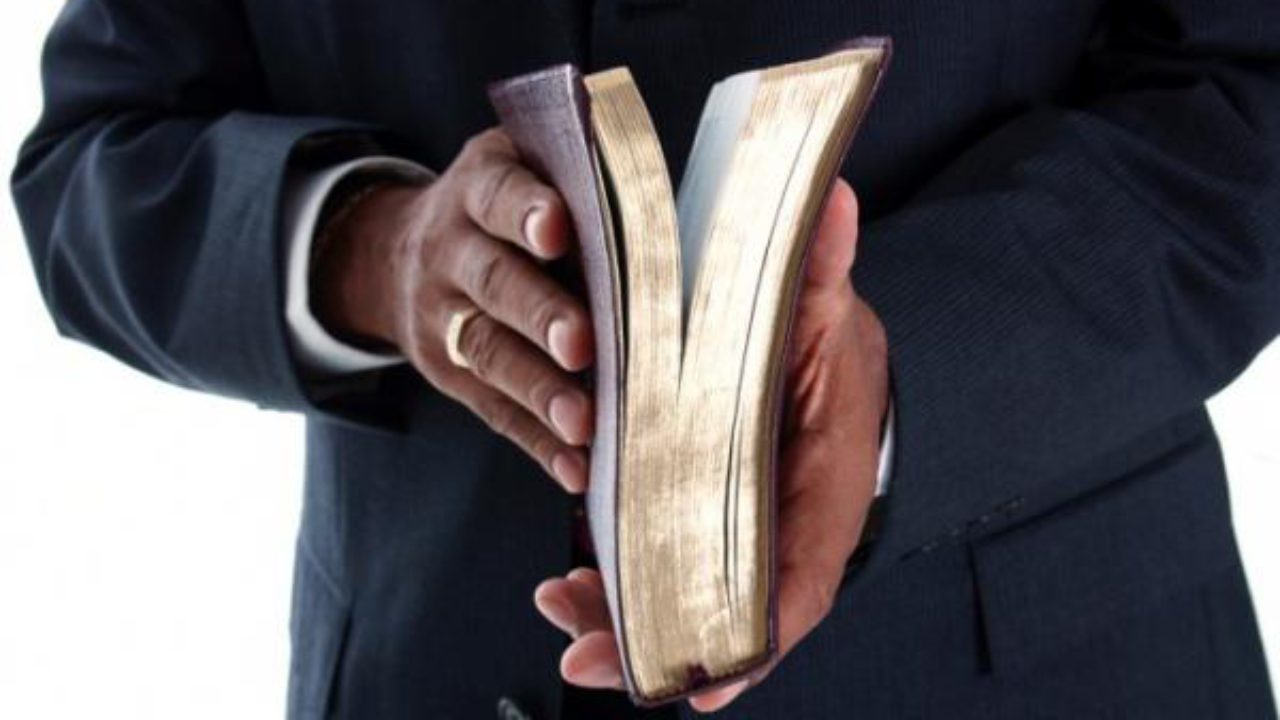Members of the Ghana Catholic Bishops’ Conference have said Pope Francis Declaration does not give Catholic priests the permission to bless same sex marriages.
According to the Bishops, In the introductory paragraph, the documentsays,“this Declaration remains firm on the traditional doctrine of the Church about marriage, not allowing any type of
liturgical rite or blessing similar to a liturgical rite that can create confusion”.
The Declaration also defines marriage as the “exclusive, stable, and indissoluble union
between a man and a woman, naturally open to the generation of children”(par. 4). It adds that it is only in the context of marriage “that sexual relations find their
natural, proper, and fully human meaning”.
This was contained in a statement issued and signed by Most Rev. Matthew Kwasi Gyamfi,
Bishop of Sunyani and President,Ghana Catholic Bishops’Conference.
The statement follows publication on 18 December 2023 of a
document from the Dicastery for the Doctrine of the Faith entitled “Fiducia
supplicans” (“On the Pastoral Meaning of Blessings”). This document was published with the approval of the Pope. Following its publication, there was a
post on the social media with the picture of Pope Francisin which he was said to have formally given Roman Catholic priests the permission to bless same-sex marriages.
This publication has caused a lot of consternation among many people, Catholics and non-Catholics alike.
Ghana Catholic Bishops’Conference said the Declaration notes that there are several occasions when people
spontaneously ask for a blessing, whether on pilgrimages, at shrines, or even on the street when they meet a priest.The Declaration makesa distinction between liturgical (sacramental) blessings and pastoral blessings which may be given to
persons who desire God’s loving graces in their lives. The Declaration says that
these blessings “are meant for everyone; no one is to be excluded from them” (par. 28). It also notes that in “a brief prayer preceding this spontaneous blessing, the ordained minister could ask that the individuals have peace, health, a spirit of patience, dialogue, and mutual assistance—but also God’s light and strength to be able to fulfill his will completely” (par. 38).
Thirdly,in view of the statement that no one should be excluded from these blessings,the Declaration deals with the possibility of “blessing couples in
irregular situations and same-sex couples without officially validating their status
or changing in any way the Church’s perennial teaching on marriage”.The
Declaration notes that when a blessing is invoked on certain human relationships
by a special liturgical rite, it is necessary that what is blessed corresponds with God’s designs written in creation and fully revealed by Christ the Lord. For this reason, since the Church has always considered only those sexual relations that are lived out within marriage to be morally licit, the Church does not have the power to confer its liturgical blessing when that would somehow offer a form of moral legitimacy to a union that presumes to be a marriage or to an extra-marital sexual
practice.
The Declarationsays that to avoid “any form of confusion or scandal”,when a
couple in an irregular situation or same-sex couples ask for a blessing, it “should
never be imparted in concurrence with the ceremonies of a civil union, and not even in connection with them.Nor can it be performed with any clothing, gestures,
or words that are proper to a wedding” (par. 39). Thus,according to the
Declaration,in imparting blessings on people outside the context of marriage,the blessing must be a simple one and must avoid any elements that remotely resemble a marriage rite.
“In Ghanaian context, some people are suggesting thatgiving a blessing to persons in same-sex relationships will send the wrong signal to people who may think that the Church is now legitimizing that way of life. However, as has been stated above, these blessings “are meant for everyone; no one is to be excluded from them”. Should the Church bless everybody but leave out couples in irregular
situations and same-sex couples? It should be noted that even if such people are guilty of homosexual acts, they are not the only sinners in the Church, as St. Paul
reminds usin 1 Cor. 6:9-10and 1 Tim. 1:8-10, and they should not be singled out.”
” In all these blessings recommended by the Declaration, the priest is blessing the people as individuals. In the case of couples or spouses who come for such
blessings, it will be good to give just a simple blessing so that they will not get the impression that their union is being blessed or solemnized. A simple blessing should be given,which can take this form: “The Lord be with you”, “And with your
spirit”. “May Almighty God bless you, the Father and the Son and the Holy Spirit”.
Source:Mybrytfmonline.com




















































